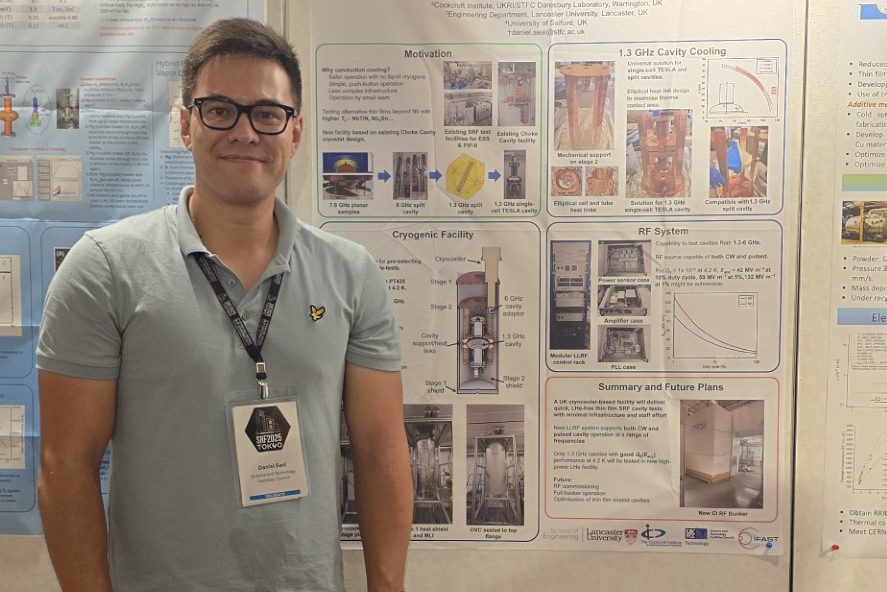
Lancaster University student wins prestigious cryogenics thesis prize
Lancaster University PhD student Dan Seal has been awarded the Harry Jones Prize by the British Cryogenic society (BSC) for 2025. The prize is given annually for the best UK…

Lancaster University PhD student Dan Seal has been awarded the Harry Jones Prize by the British Cryogenic society (BSC) for 2025. The prize is given annually for the best UK…

Over the past few decades, the field of plasma-based accelerators – such as laser wakefield acceleration (LWFA) and beam-driven plasma wakefield acceleration (PWFA) has made remarkable advances. The long-predicted GeV/m…

The University of Liverpool’s QUASAR Group hosted an important planning meeting for the IPAC’26 Scientific Program Committee (SPC) in Liverpool from 14 – 15 January. The event was held at…
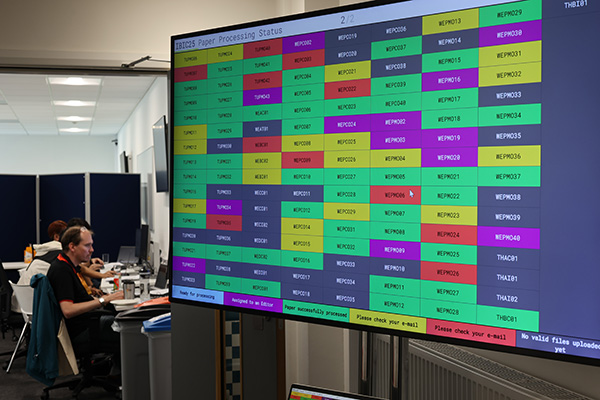
The International Beam Instrumentation Conference 2025 (IBIC 2025) was held from 7th to 10th September 2025 at the University of Liverpool. We are pleased to announce that the final conference…

British physicist and former STFC Excecutive Chair Mark Thomson began his five-year mandate as CERN General Director on 1 January 2026, taking over from Fabiola Gianotti. Much of his earlier…
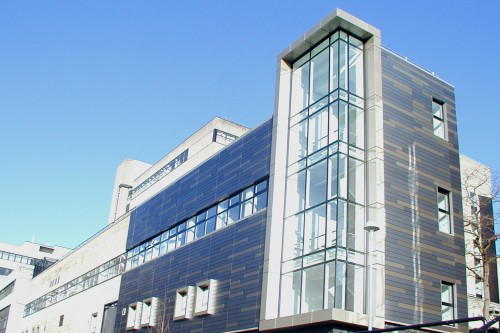
Cockcroft Institute researchers at the University of Strathclyde have successful commissioned a laser-driven proton source platform at the Scottish Centre for the Application of Plasma-based Accelerators (SCAPA) and completed three…
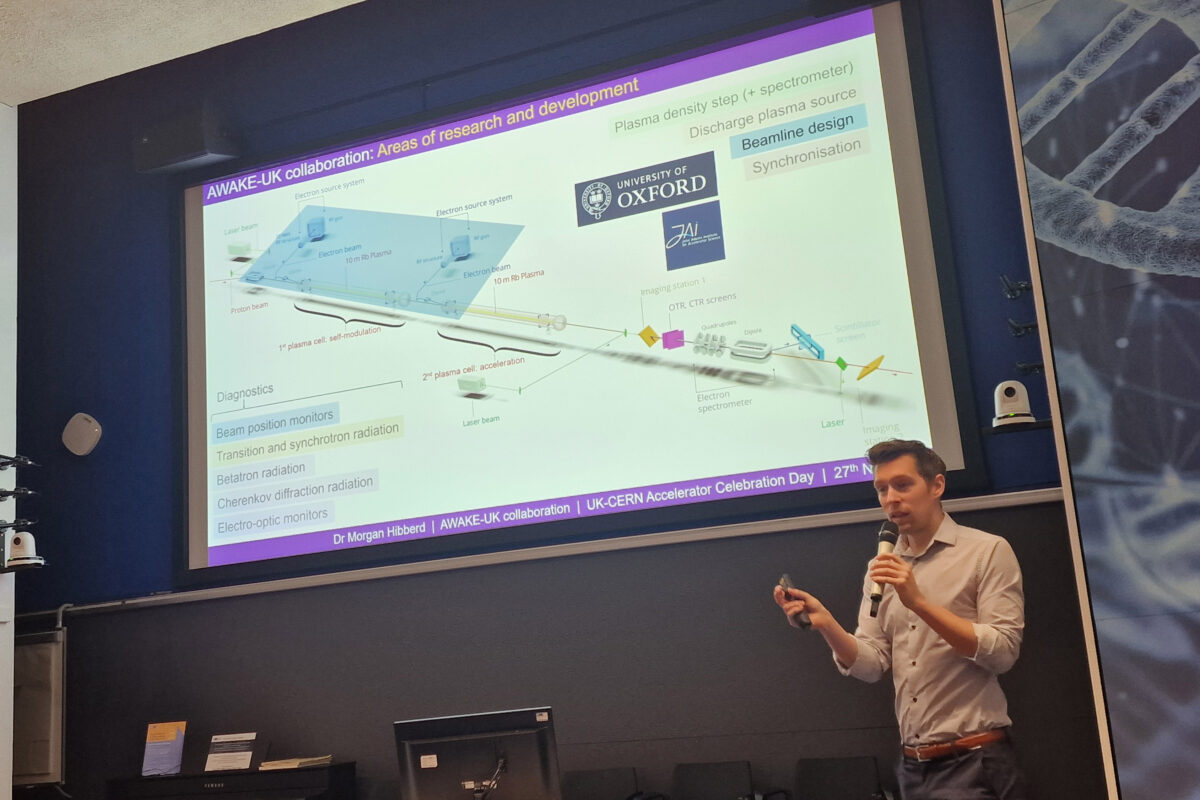
As one of the founding members of CERN, the UK has a long history of contributing to its physics and engineering projects. In recognition of recent successes in UK-CERN accelerator…
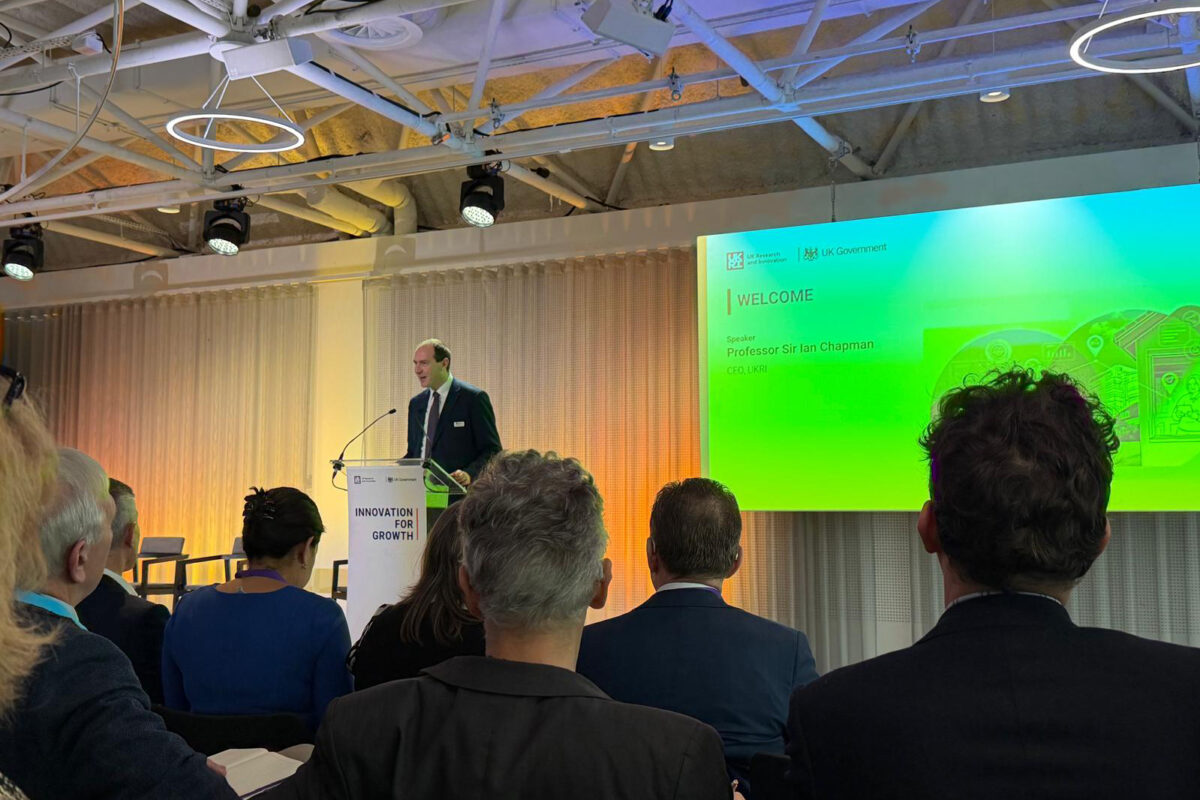
On Monday, 24 November 2025, leading figures from UK research, industry and government convened at the Innovation for Growth Summit in London, hosted by UK Research and Innovation (UKRI) in…
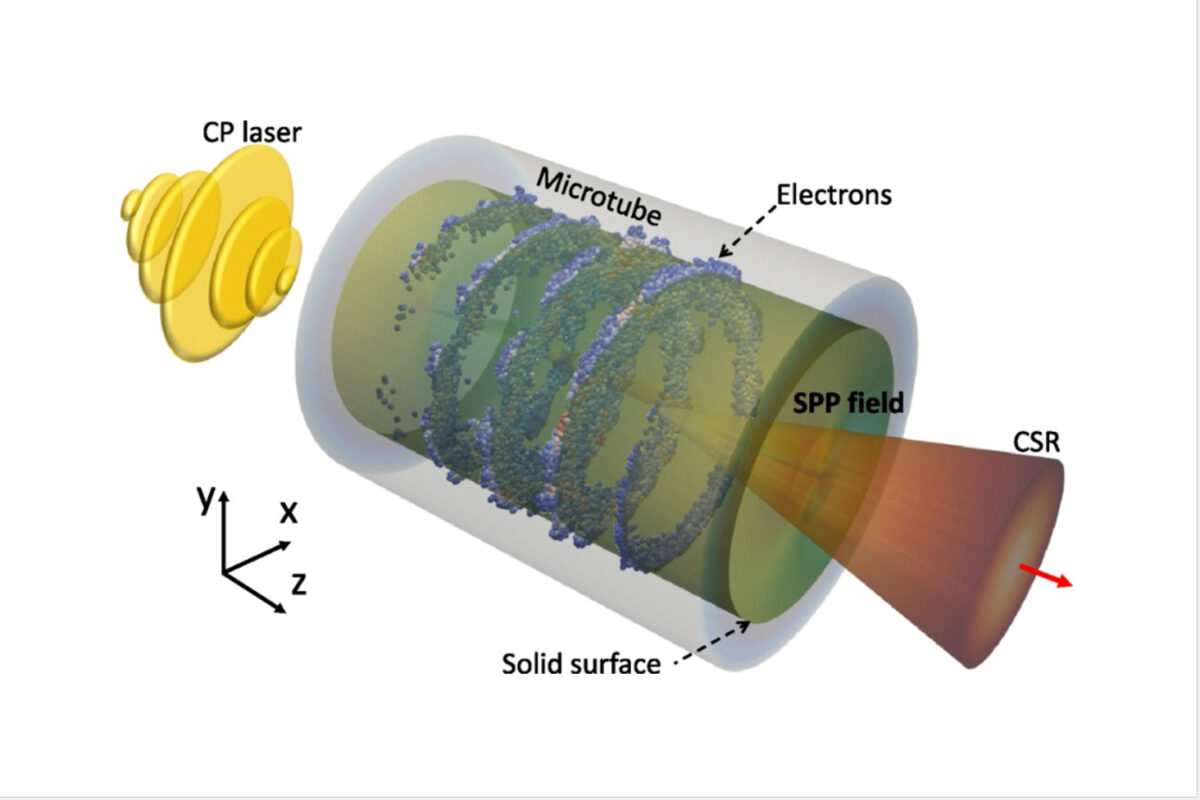
A groundbreaking study involving members of the University of Liverpool’s QUASAR Group, based at the Cockcroft Institute, has been selected as this week’s cover story for Physical Review Letters (PRL), highlighting an advance that…